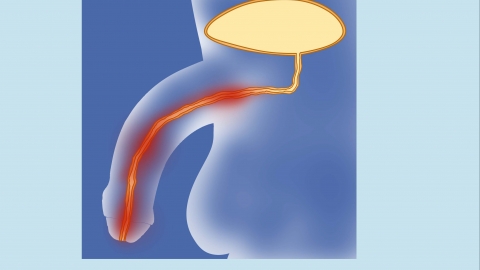What medication is effective for treating urethritis?
Generally, urethritis is an inflammatory condition caused by bacterial or non-gonococcal pathogen infection of the urethra. Patients may follow medical advice to use medications such as Ceftriaxone Sodium Injection, Levofloxacin Hydrochloride Tablets, Azithromycin Dispersible Tablets, Doxycycline Hydrochloride Tablets, and Nitrofurantoin Enteric-coated Tablets for treatment. Detailed explanations are as follows:
1. Ceftriaxone Sodium Injection
This medication belongs to the third-generation cephalosporin antibiotics. It exerts potent bactericidal effects by inhibiting bacterial cell wall synthesis and demonstrates excellent antimicrobial activity against Gram-negative bacteria. It is stable against β-lactamase and is suitable for treating gonococcal urethritis and acute urethritis caused by susceptible bacteria, especially for patients with moderate to severe infections.

2. Levofloxacin Hydrochloride Tablets
This is a quinolone broad-spectrum antibiotic that inhibits bacterial DNA gyrase activity, thereby hindering bacterial DNA replication and killing various bacteria causing urethritis. It is suitable for treating non-gonococcal urethritis and bacterial urethritis, showing good therapeutic effects even on complicated cases.
3. Azithromycin Dispersible Tablets
This medication belongs to the macrolide antibiotics. It works by binding to bacterial ribosomes and inhibiting bacterial protein synthesis, thereby exerting bacteriostatic effects. It is effective against non-gonococcal pathogens such as chlamydia and mycoplasma, as well as certain bacterial infections. It is suitable for treating non-gonococcal urethritis, and the dispersible tablet formulation allows for faster absorption.
4. Doxycycline Hydrochloride Tablets
This is a tetracycline antibiotic that inhibits protein synthesis by interfering with bacterial ribosomal function. It has antimicrobial activity against pathogens such as chlamydia, mycoplasma, and Neisseria gonorrhoeae. It is suitable for treating both non-gonococcal and gonococcal urethritis, especially for patients allergic to penicillin antibiotics.
5. Nitrofurantoin Enteric-coated Tablets
This medication is reduced within bacterial cells to produce active metabolites that interfere with bacterial DNA, RNA, and protein synthesis. It primarily demonstrates significant effects against Gram-negative bacteria. It is only suitable for treating uncomplicated bacterial urethritis, effectively eliminating susceptible bacteria in the urethra and relieving discomfort during urination.
Maintaining good daily habits is important. Change underwear regularly, keep the urethral opening clean, avoid holding urine, drink more warm water to promote urethral flushing, and avoid consuming spicy, irritating foods and alcoholic beverages, which may hinder recovery.








